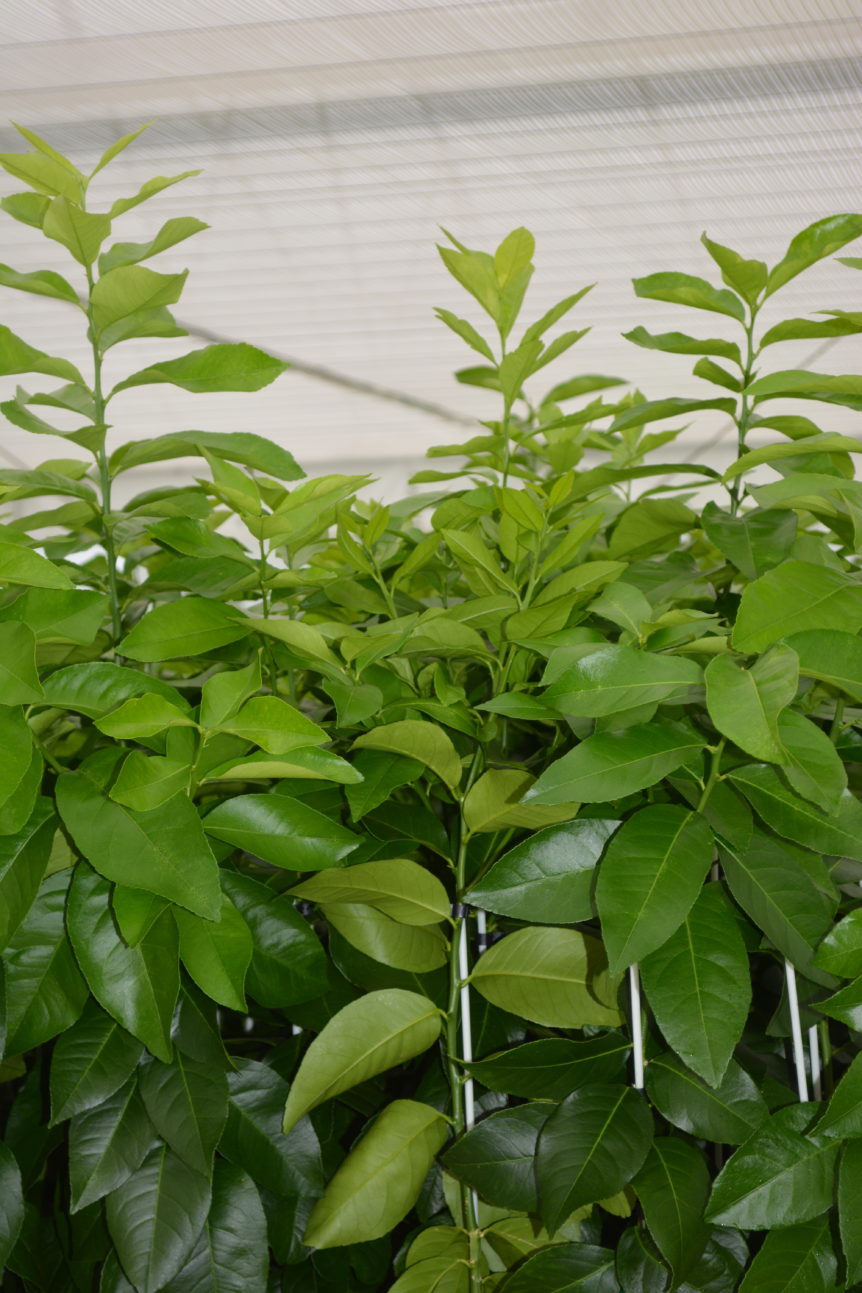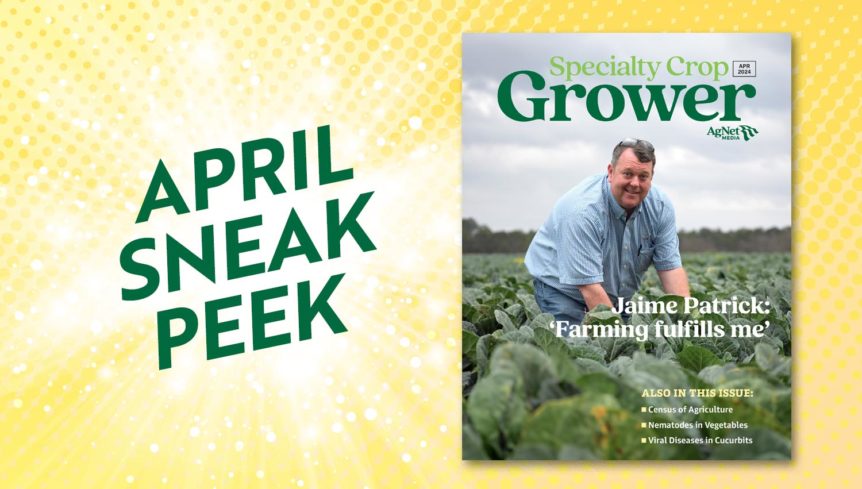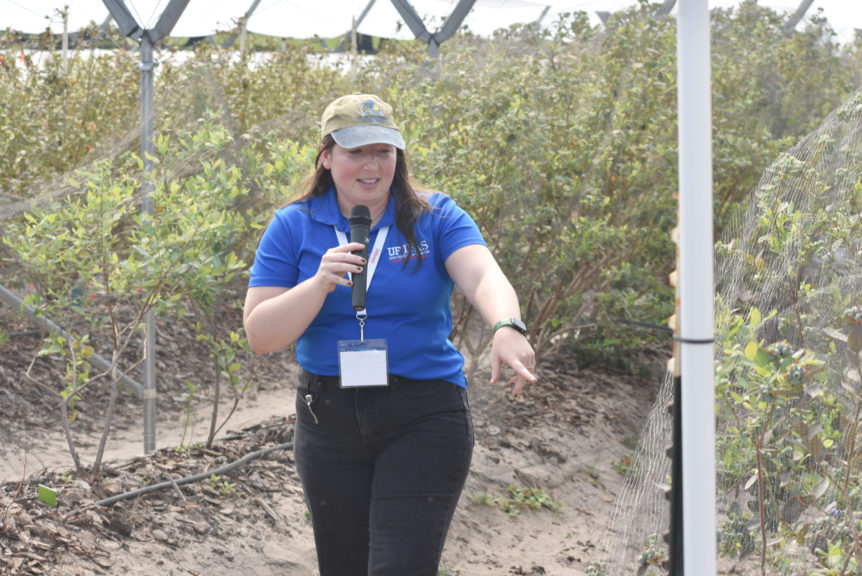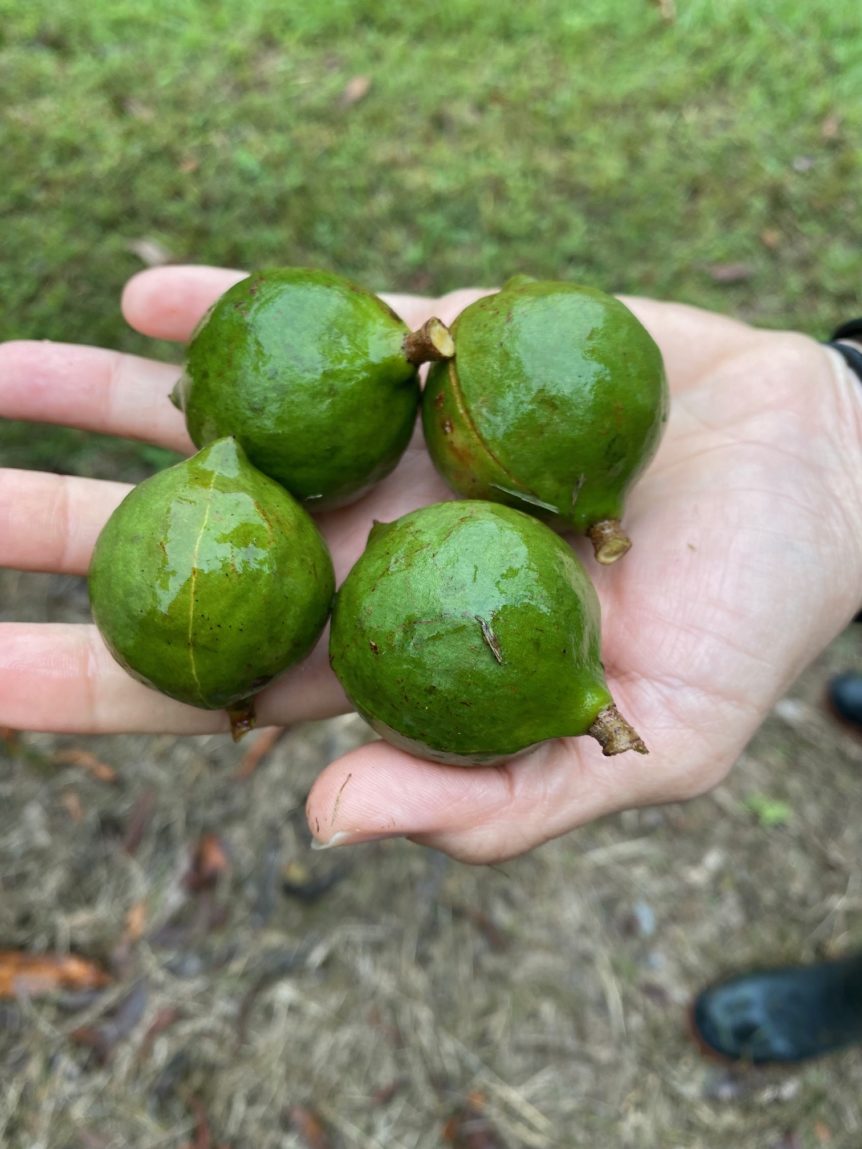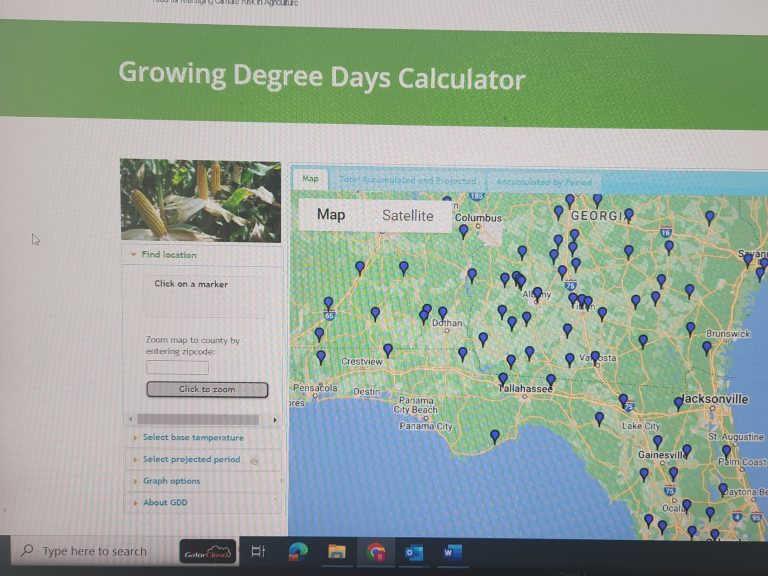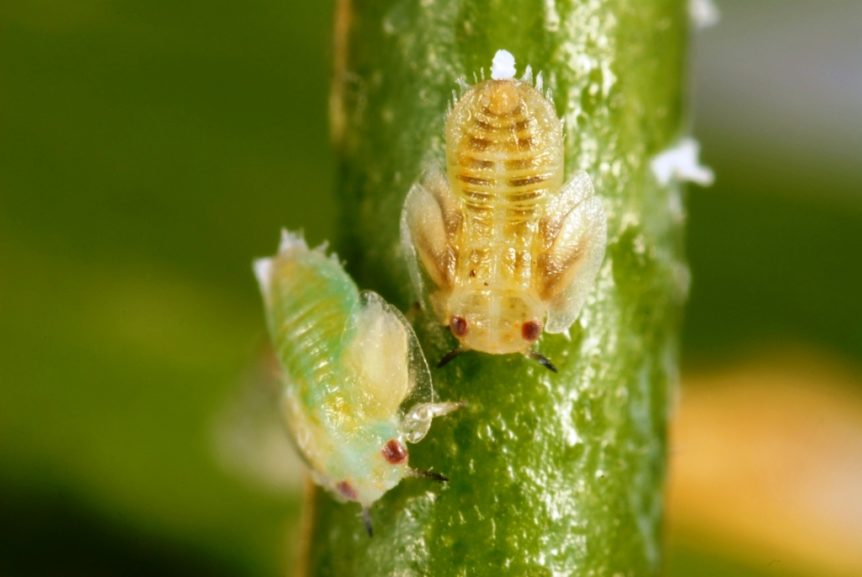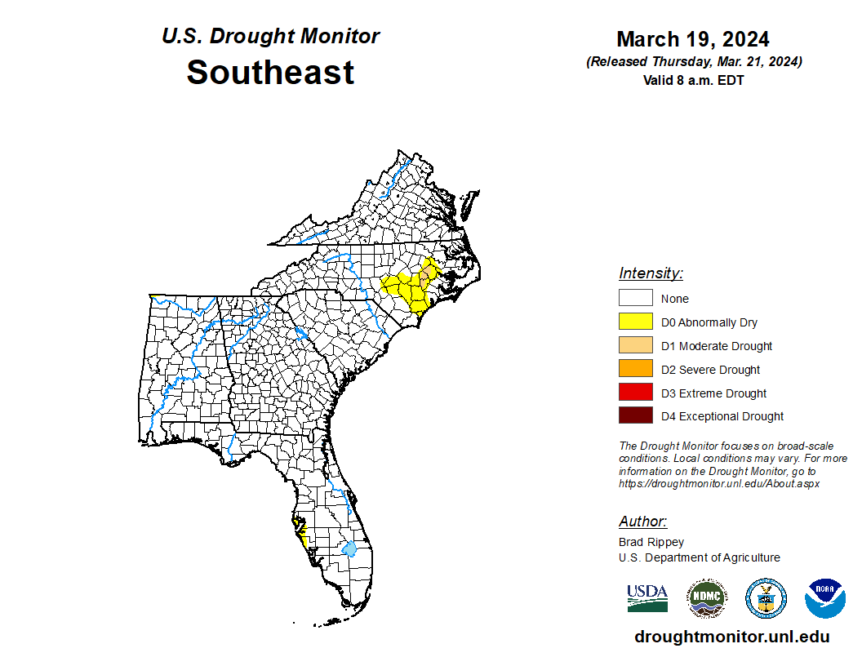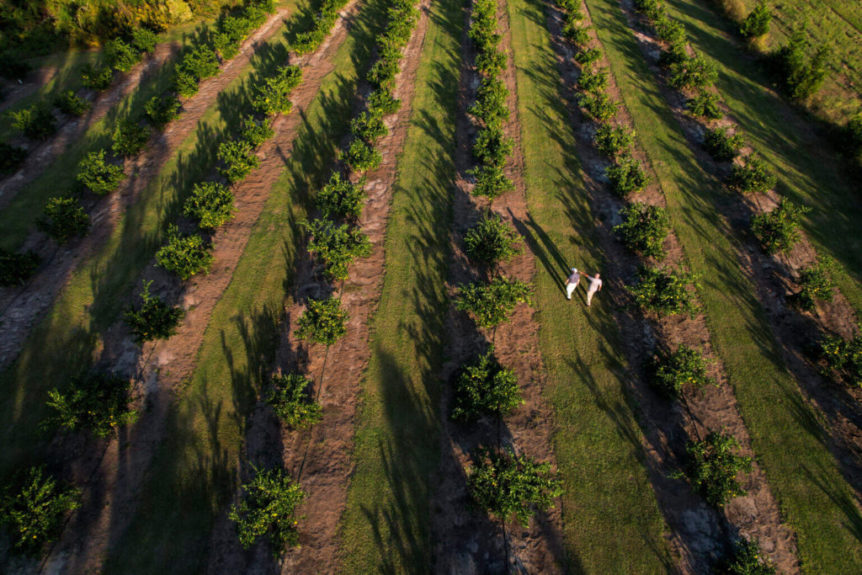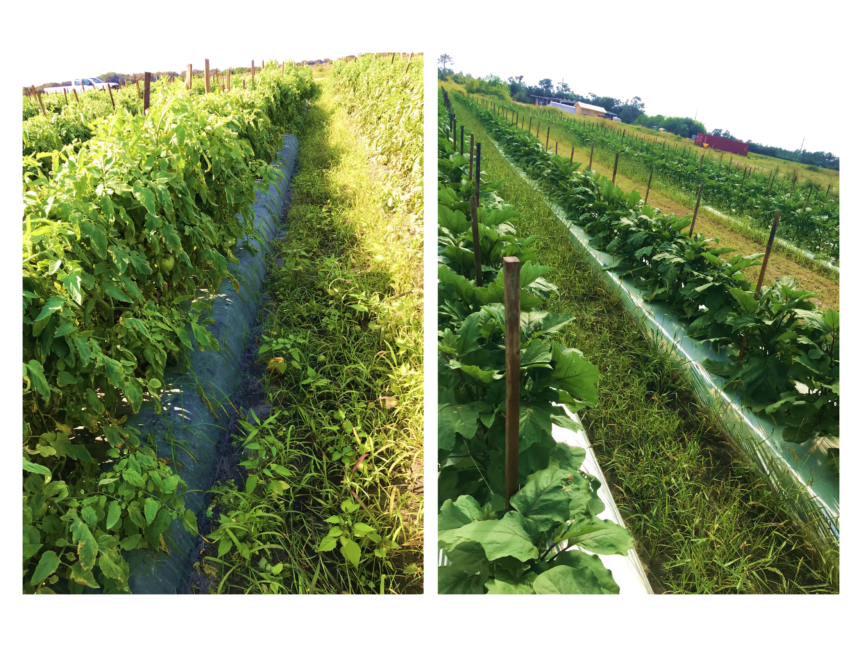Citrus meetings are vital to a grower’s plan for the upcoming season. What they learn and take back to the grove can provide major benefits heading into the upcoming harvest season. The recent Georgia Citrus Association annual meeting provided a venue for growers to share management tips with their peers. Lindy Savelle, president of the Georgia Citrus Association, compiled a …
Sneak Peek: April 2024 Specialty Crop Grower Magazine
The April issue of Specialty Crop Grower Magazine focuses on Georgia vegetable farmer Jaime Patrick and how farming “fulfills” him. The producer from Omega, Georgia, grows a plethora of crops over 5,000 acres in South Georgia and employs more than 400. He talks about how technology has changed the way he and others farm and how he remains a strong …
UF/IFAS Research: Nitrogen Recommendations for Evergreen Blueberries Being Studied
By Clint Thompson Nitrogen recommendations for evergreen blueberry production in Florida are still a relative unknown for growers. Lauren Goldsby, graduate research assistant at the University of Florida Institute of Food and Agricultural Sciences (UF/IFAS), hopes to provide some clarity with research at the UF/IFAS Citra location. “We’re aware that we can produce evergreen production in the state of Florida. …
Who’s Feeling Nutty? UF/IFAS Macadamia Research Needs Volunteer Producers
By Clint Thompson Macadamia nuts are currently being considered as an alternative crop for Florida production in the central and southern part of the state. Whether there is a future for the nut in the Sunshine State will be largely determined by the interest level from potential producers. University of Florida Institute of Food and Agricultural Sciences (UF/IFAS) researchers are …
UF Web-Based System Launches ‘Climate Indicators Tool’ to Help Producers
A new University of Florida (UF)-developed web-based tool will help growers reduce risks that come with climate variability. It is called the “climate indicators tool,” the newest addition to AgroClimate, a web-based platform designed 15 years ago by Clyde Fraisse, a UF Institute of Food and Agricultural Sciences (IFAS) professor of agricultural and biological engineering. Growers can use the new …
‘The Psyllids Will Like Georgia Just Fine’
A California citrus leader believes Georgia will make an ideal home for the Asian citrus psyllid, which vectors the devastating huanglongbing (HLB) disease. “North of Florida, it is colder, and it’s certainly not as suitable a place as Florida is, but the psyllid is still going to be fine. The cold isn’t long enough here to knock the populations out,” …
Abnormally Dry Conditions Minimal Across SE
Last fall should seem like a long time ago for specialty crop producers in the Southeast (SE). An extended drought lingered for multiple months throughout Florida, Georgia and Alabama during that time period. That drought is not the case anymore, however, according to latest release of the U.S. Drought Monitor. Minimal drought is present across the region, which includes no …
Conference to Examine Policy Issues Facing Agribusiness Leaders
This year’s Florida Agricultural Policy Outlook Conference will examine critical policy issues facing agribusiness leaders and provide valuable economic insights to help stakeholders make informed business and policy decisions. The conference returns to the University of Florida (UF) Gulf Coast Research and Education Center on April 17, where it was held last year. Those interested in attending can register here …
Georgia Citrus Association Outlines Industry Initiatives
The Georgia citrus industry has experienced a significant increase in production since it started more than 10 years ago. The Georgia Citrus Association (GCA) is taking steps to ensure continued expansion. During the GCA’s recent annual meeting in Tifton, association president Lindy Savelle spoke with AgNet Media and outlined her organization’s priorities on the heels of another harvest season. A …
Specialty Crop Grower Magazine: Row-Middle Weed Control in Vegetable Plasticulture
By Ramdas Kanissery Battling weeds is a real struggle in vegetable plasticulture production — not just in the plastic mulched planting beds but also in the row-middle spaces between beds (see Figure 1). Weeds in the row middles can compete with the main crop while playing host to insect pests, nematodes and pathogens. Tackling row-middle weeds comes with its own …










